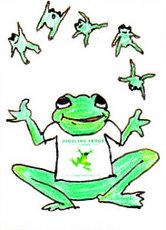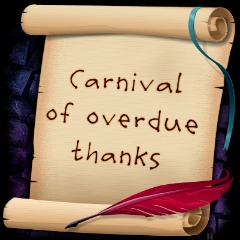Senior Recognition Night remarks 2007
As your PTA president, it is my privilege to present you with our gift.
This year’s choice, “A Maimonides Reader,” is Rabbi Twersky’s English translation of selections of the Rambam’s works that he thought essential to understanding the scope and content of the Rambam’s outlook, philosophy, and impact.
Appropriately, Senior Recognition Night falls in the week of parshat Korach this year. This parsha is replete with lessons about accomplishment, recognition, responsibility, and the attainment of power that can be learned by analyzing Korach and his sins:
Numerous commentators characterize Korach's faults, contrasting his methods with Moshe’s.
We are struck by the disparity between Moshe’s renowned humility and the insolent, hubristic, sarcastic tone Korach used to deride the Torah.
Dissatisfied with his resources, (wealth, political power, charisma, intelligence) he used them to foment strife. From Korach, we learn "It is forbidden to sustain an argument”
In masechet Avot, the mishna criticizes Korach’s motives by comparing them with those of Hillel and Shammai. The dispute of Korach and his group defines an argument not for the sake of Heaven. We are told such a dispute will not endure.
Moshe, Hillel, and Shammai’s motives were pure. Korach and his cronies’ his opportunistic power grab is characterized by a stunning lack of dereh eretz. Korach’s harsh satire of the commandments, his mockery of the Torah, was teeming with jealousy and arrogance.
Okay, so everybody agrees Korach and his methods are contemptible.
But what about the content of his argument?
Korach contested Moshe’s appointment of Aaron as Kohen HaGadol, by asking, “aren’t all the members of the nation holy? After all, haven’t we all experienced the revelation at Sinai?”
Korach’s argument is a multi-faceted contradiction in terms. Not only is it illogical to say that he, Korach, should be singled out from the group for a position of distinction, based on the equality of the merits of its members, but Korach’s acquisitive rebellion was a repudiation the very achdut obtained at Har Sinai that he claimed as the foundation of his argument.
Rabbi Soloveitchik pointed out that
Rabbi Samson Raphael Hirsch highlights Korach’s error in confusing reality with potential. He says that at the time of Korach’s rebellion,“[while] It is true that every Jew, […] is innately holy, […] there is another
aspect of holiness that depends on personal merit. The greater a person
makes himself, the greater his degree of holiness. In all his
speeches in this chapter, Korach referred only to the communal, common
holiness. Moshe never did. He spoke only of the individual whom God
chooses. Moshe acknowledged the national holiness, but he added that
leadership depends on personal merit, and it was in this that Aaron was superior
to his detractors.”
“Kol haeidah coolam were by no means Kedoshim already. They were Anshei
Kodesh, men of a holy calling, Kedoshim yehiu, they have the calling to become
holy, and just by this calling are Kedoshim lalokeichem, are an am kodesh
la’Hashem, men hallowed to God, a nation […] exclusively to God; but
Kedoshim, “holy”, that they are not yet.”
He says that
“[…T]hey [should] not mix up what they are with what they should be, … not
imagine themselves already holy because they are hallowed to a holy calling, but
that they should rather keep this holy calling of theirs always before them as
the goal set by God for all their endeavors,…”
As freshly minted graduates of [name of our school], you are in a position that can be likened to that faced by klal yisroel after receiving the Mesorah at Har Sinai. Just as then, you must now decide what to do with the knowledge you have gained. How will you apply it to the challenges and circumstances of your life? How will you live up to your potential? It is the unfolding story of the answer to this question that comprises our history as Jews, the story of our ongoing relationship with Hashem and His world. We, your parents, eagerly anticipate learning your particular answers to this question.
There is another similarity between Klal Yisroel at the foot of Har Sinai and our [name of our school] students as they graduate. When we stood at Har Sinai, we were “am ached im lev achad” – one nation with one heart – yet we each heard Hashem’s voice in our own way, according to our own individual level of understanding.
The schismatic machinations of Korach did not, and can not, endure.
Likewise, the Class of 2007 is a cohesive group, having journeyed, studied and grown together these past 13 years. Yet each of you experienced your education individually. Together, in your educational tenure at [name of our school] you experienced all the unique qualities of our school: the guiding vision of Rav Soloveitchik, its fabulous teachers and staff, our passionately involved and committed community. These are but a part of a special partnership, to which each of you brought your unique personality, aptitudes, enthusiasms and outlook.
We, your parents, stand in awe of what you have accomplished and the fulfillment of your potential that you’ve realized. We celebrate you - individually – and together – and the opportunities that lie ahead.
May you always stand tall, as you do today, knowing that your foundations are secure and true, built on love and fear of Hashem and His Torah, the love of your family, and on an excellent education based on Rav Soleveitchik’s philosophy of engaging in worldly matters, always for the sake of Heaven.
May you continue to be like Aaron, focusing on the attainment of kedusha, not its trappings. May you always confront the world l’shaim shamayim, so that your accomplishments will endure.
May you continue to merit being the joyful conduit of HaShem’s gift of nachat to your parents.
May you always know that we, your parents, are very, very proud of you.
Mazal tov!







0 comments, so far. Add yours now!
Post a Comment
Post a Comment